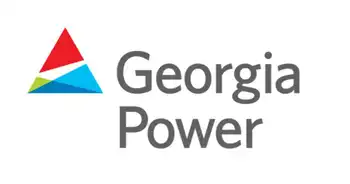Georgia Cities Clean Energy IRP Coalition unites Savannah, Atlanta, Decatur, and Athens-Clarke to shape Georgia Power's Integrated Resource Plan, accelerating renewables, energy efficiency, community solar, and coal retirements through Georgia Public Service Commission hearings.
Key Points
Georgia cities working to steer Georgia Power's IRP toward renewables, energy efficiency, and community solar.
✅ Targets coal retirements and doubling renewables by 2035
✅ Advocates data access, transparency, and energy efficiency
✅ Seeks affordable community solar options for low-income customers
Savannah is among several Georgia cities that have led the charge forward in recent years to push for clean energy. Now, several of the state's largest municipalities are banding together to demand action from Georgia's largest energy provider.
Hearings regarding Georgia Power's Integrated Resource Plan (IRP) happen every three years, but this year for the first time the cities of Savannah, Decatur, Atlanta and Athens-Clarke and DeKalb counties were at the table.
"It's pretty unprecedented. It's such an important opportunity to get to represent ourselves and our citizens," said City of Savannah Energy Analyst Alicia Brown, the Savannah representative for the Georgia Coalition for Local Governments.
The IRP, which essentially maps out how the company will use its various forms of energy over the next 20 years was filed with the Georgia Public Service Commission (GPSC) in January, the 200-page IRP outlines Georgia Power's plans to shutter nearly all Georgia Power-controlled coal units, similar to Tucson Electric Power's coal exit timelines elsewhere, which could begin later this year.
The company is also planning to double its renewable energy generation by 2035. The IRP also outlines plans for several programs, including an Income-Qualified Community Solar Pilot, reflecting momentum for community energy programs in other states as well.
During the hearings the coalition, alongside the other groups, had the ability to question Georgia Power officials about the plan to include the proposed increase per kilowatt for the company's Simple Solar program, Behind-the-Meter Solar program study and various other components, amid debates over solar strategy in the South that could impact lower income customers.
"The established and open IRP process is central to effective, long-term energy planning in Georgia and is part of our commitment to 2.7 million customers to deliver clean, safe, reliable and affordable energy. In continuing our longstanding relationship with the City of Savannah, we welcome their interest and participation in the IRP process," John Kraft, Georgia Power spokesman said in an email.
Brown said the coalition's areas of interest fall into three categories: energy efficiency and demand response, data access and transparency and renewable energy for citizens as well as the governments in the coalition.
"We have these renewable goals and just the way the current regulations are set, the way the current laws are on the books, and developments like consumer choice in California show how policy shifts can reshape utility markets, it's very challenging for us to meet those renewable energy goals without Georgia Power setting up programs that are workable for us," she said.
The city of Savannah is already taking action locally to reduce carbon emissions and move toward clean and renewable energy through the 100% Savannah Clean Energy Plan, which was adopted by Savannah City Council in December.
The plan aims to achieve 100% renewable electricity community-wide by 2035 and 100% renewable energy for all energy needs by 2050.
Council previously approved the 100% Clean Energy Resolution needed to develop the plan in March 2020, making Savannah the fifth city in the state to pledge to pursue a lower carbon future to fight climate change.
The final plan includes 45 strategies that fall into five categories: energy efficiency; renewable energy; transportation and mobility; community and economic development; and education and engagement.
Brown said the education and engagement component is central to the plan, but the pandemic has hindered community education and awareness efforts, and utilities have warned customers about pandemic-related scams that complicate outreach, something the city hopes to catapult in the coming weeks.
"With the 100% Savannah resolution passing right before the pandemic, we haven't had as many opportunities to raise awareness about the initiative and to educate the public about clean energy as we would like. This transition will present a lot of opportunities for our communities, but only if people know that they are there to be taken," she said.
"... We also want to engage the community so that they feel like they are developing this vision for a healthy, prosperous, clean community alongside us. It's not just us telling them, 'we're going to have a clean energy future and it's going to look like this,' but really helping them to develop and realize a collective vision for what 100% Savannah should be."
The final round of IRP hearings are scheduled for next month. Those hearings will allow the coalition and other groups to put witnesses on the stand who will make the case for why Georgia Power's IRP should be different, Brown said.
In June, Georgia Power, following a June bill reduction for customers, will have a chance to offer rebuttal testimony and will again be subject to cross examination. Shortly after those hearings, the parties will join together for the settlement process, a sort of compromise on the plan that the commission will vote on toward the beginning of July.
Related News












